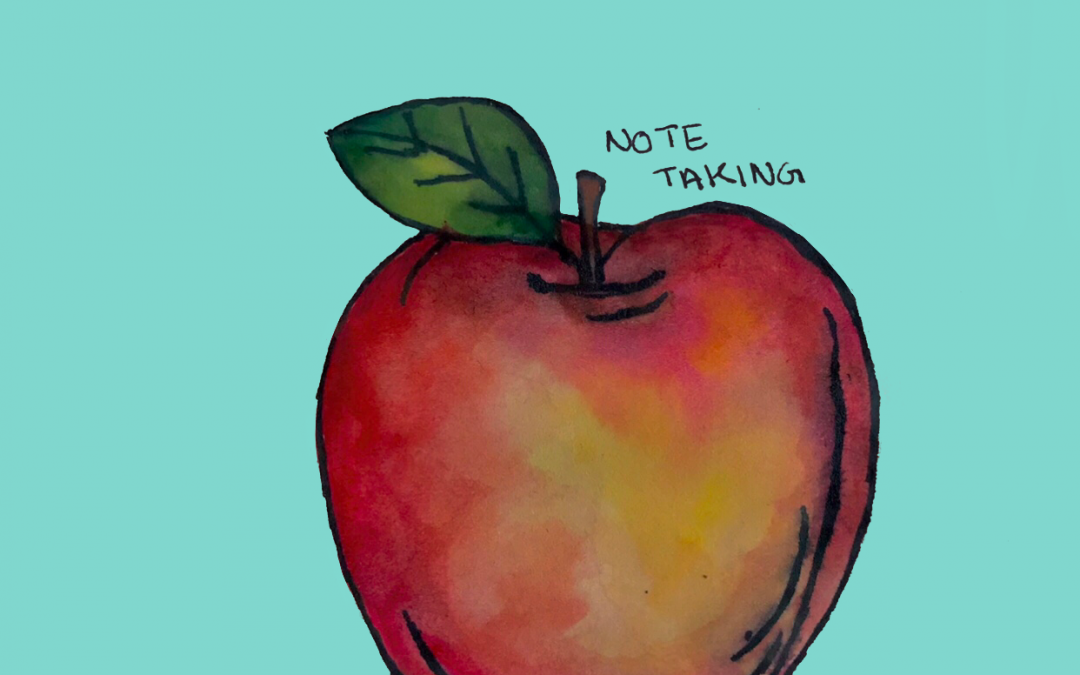Do you ever find it difficult to know what you should write down during class? Whether you are taking notes in class or sitting in a lecture hall here are some tips to write clear notes.
Why is writing good tips useful?
In class benefits
Having good notes is seen as crucial for revising class material and to better understanding key concepts within your classes. In most classes, you are expected to prepare before a lecture either by doing readings or watching videos. Additionally, having good notes will help improve your active listening, comprehension, and retention of information. Improving this ability will contribute to you being able to retain material in general better.
Post-class benefit
Having good notes that are efficient and concise can save you time and energy in the long run. Additionally, it can help you not feel overwhelmed during exam periods, since you will already have a clear set of notes to study from.
Preparing to take good notes in class
The first step in taking good in-class notes is coming to class prepared. Here are some tips on how you can improve your note-taking before class starts.
- Start by previewing your reading assignments before your lecture. Previewing allows you to spot the main ideas and concepts that will be talked about during your class.
- Look at the syllabus so that you are aware of the main focus of the class and what is important to know from it.
- Look at your notes from the previous class session to help you make connections and situate new ideas that you will learn in this lesson.
- Keep organized so you can find information easier later. Title your page with the class name and the date. Keep separate notebook sections or notebooks for each class and keep all notes for each class together in chronological order.
Note-taking during class
Now you know how to prepare and organize here are some practical steps you can take to improve your in-class note-taking.
- If you are looking for conceptual information try focusing on the overall points that the professor makes rather than writing down everything the professor says. When you review your notes after class you can always fill in the gaps or define concepts that you didn’t catch in class.
- Make sure to note down relevant questions or thoughts you have or any content that confuses you. Make sure if you can to ask the professor to clear up things you found confusing. They are there to help you!
- Write down dates, keywords and etc. that you can go back to later and further expand on.
- If you work well with concise and brief notes use abbreviations and symbols. Write in bullet points and phrases rather than complete sentences. This can help your mind stay fresh during class and not tire out your hands. Also will help you focus on the main ideas of the lecture.
- Be consistent with your structure. Pick a format that works for you and stick with it so your notes are consistent.
Determining the important information
It can be difficult to differentiate what information is important and what’s less important. Here are some tips to help you!
- Introductory remarks often have an overview of the main concepts.
- Look out for signaling phrases like; ‘there are four main..’ or ‘To sum up..’
- Repeated words or concepts are often important
- Nonverbal cues like pointing or vocal emphasis on phrases can indicate the importance
- Final remarks also provide a summary of important aspects of a lecture
Taking notes is a great way to fully understand the information that is presented within classes. It is also a great step to get your information together and be prepared for exams and assignments. Of course, everyone has different things that work for them but I hope these tips can help you and your academic journey.

